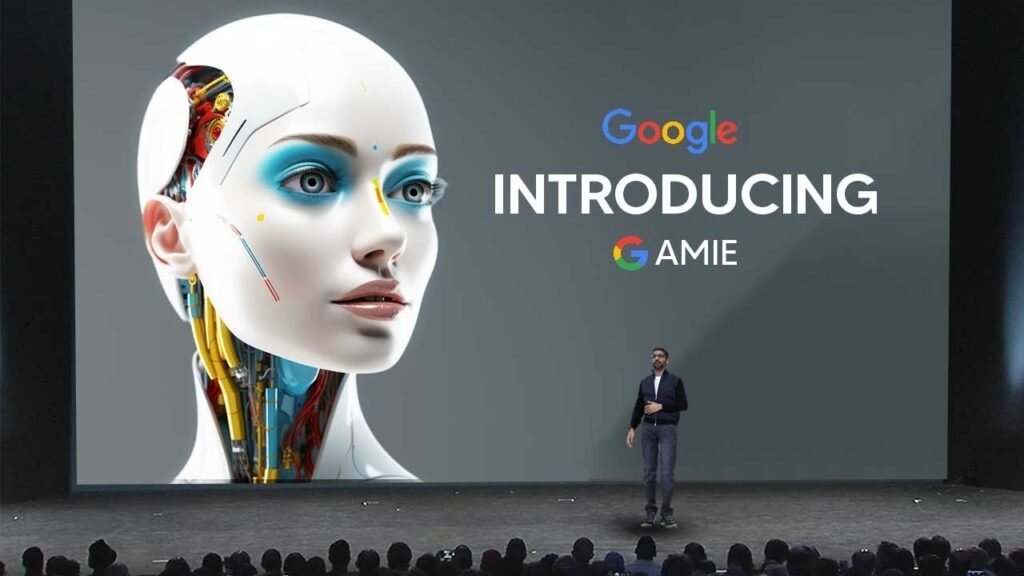
What is Google AMIE AI aka Articulate Medical Intelligence Explorer? Well, it is an AI chatbot that can engage in diagnostic conversations with patients, similar to human doctors. It has been trained on real-world datasets, including medical reasoning, summarization, and clinical conversations. AMIE is based on a large language model (LLM) developed by Google and can deliver results across a multitude of disease conditions, specialties, and clinical scenarios.
How was Google AMIE AI trained?
AMIE was trained using real-world data that included medical reasoning, summarization, and clinical conversations. However, the team also employed a self-play mechanism to allow the system to simulate medical diagnostic conversations. Self-play is a method used in artificial intelligence where a system plays against itself, often used in training AI models, especially in complex decision-making scenarios. The purpose of self-play in AMIE was to allow the system to simulate medical diagnostic conversations, allowing the AI doctor to practice by having a conversation with an AI patient, with both roles played by the system itself. This method allowed AMIE to learn from thousands of medical scenarios in a very short period, which would be impossible in real-world settings. Continuous learning through self-play helps improve the system’s diagnostic accuracy as it continuously adapts and updates its knowledge base.
How well did AMIE measure up to Real Doctors?
Google AMIE AI’s ability to diagnose medical conditions was tested in a study where its performance was compared with that of 20 real primary care physicians. Instead of real patients, trained actors played the role of patients, and the AI and doctors were both evaluated on how well they gathered patient history, diagnosed conditions, and managed medical issues, communicated, and built up relationships with these patients. The study had a unique approach, reflecting how people commonly interact with large language models today through text-based communication. The study showed that AMIE was better at figuring out medical diagnoses than primary care physicians, and its ability to diagnose was consistently good across medical fields, especially in respiratory and cardiovascular specialties. The study also showed that self-play training improved the quality of AMIE’s simulated conversations.
What are the Benefits of AMIE
The potential benefits of using AMIE AI in medical diagnosis are significant. It has demonstrated the ability to engage in diagnostic conversations with patients, showing a level of reasoning comparable to human doctors. AI systems like AMIE could complement human clinicians, particularly in areas where access to medical expertise is limited globally. It has the potential to improve clinical outcomes, such as accuracy and time-saving in diagnosis and treatment, as well as its application in various medical disciplines, including breast cancer diagnosis, lung adenocarcinoma, and squamous cell histopathology studies.

LIMITATIONS OF AMIE & Other Artificial Intelligence Bots in the Medical Field
However, there are also drawbacks to AI in general in the medical field, such as the need for external evaluation, lack of awareness of AI experts of the regulatory landscape, and privacy concerns. Additionally, AI can have disadvantages such as the potential for risk to human life and well-being due to the possibility of errors, high development costs, and lack of originality. There is also the high possibility of medical professionals losing their jobs. It is important to carefully consider these factors when implementing AI in healthcare.
Real doctors have skills, knowledge, and dedication to principles like safety, quality, communication, and professionalism, which are essential in medical practice. The evaluation techniques used in the study, such as text-based interactions, may not fully represent usual clinical practice, and there are important limitations to be addressed, including experimental performance under real-world constraints and the exploration of topics such as health equity, fairness, and privacy. Therefore, while AI systems like AMIE show promise, they are still in the early stages of research and will require significant additional research to ensure their safety, reliability, and real-world value.
Will Google AMIE AI replace your doctor soon?
Not really in the foreseeable future for sure. While AMIE’s performance in simulated consultations was promising, it is still in the early stages of research and will require further development and research to ensure its safety in usage in the real world.




